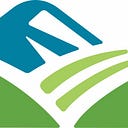Bethel prepping for changes to high school science curriculum
Bethel teachers, school administrators, and central office staff are always working to make our science curriculum is as rigorous, engaging and equitable as possible, so when Washington lawmakers announced new statewide graduation requirements, the district saw it as an opportunity to bolster our already strong science program.
In 2013 Governor Jay Inslee officially adopted the Next Generation Science Standards, which aimed to “provide consistent science education through all grades, with an emphasis on engineering and technology,” according to the Washington State Office of Superintendent of Public Instruction.
As part of the new requirements, every high school student in Washington will soon need to pass a test called the Washington Comprehensive Assessment of Science in order to graduate (WCAS).
The class of 2021 will be the first to take the test as an official graduation requirement. These students are our current 10th graders.
Testing roadmap:
High school students need three science credits to graduate. Currently, every student is required to take one biology class and two other science courses, and then, depending on graduation year, pass a Washington state biology test in order to graduate.
Under the new standards, every student will need to pass the more comprehensive WCAS science test at the end of their junior year in order to graduate.
“Because it’s a more comprehensive test, because it’s at the end of their junior year, because it’s a graduation requirement, we need to have some guarantees that kids are learning certain things during their freshman, sophomore and junior years,” said Loren Willson, Bethel’s Director of Secondary Teaching and Learning.
The new standards require students to study four science domains: life science, physical science, earth-space science, and engineering technology.
In order to make the transition as orderly and painless as possible, the district put together a Science Course Sequence Committee to help create the most effective roadmap to get students where they need to be by graduation.
The committee met four times last year and identified three different course sequences that will prepare students for the WCAS.
The standard sequence lets students take a biology class, a chemistry class, and a physics class each with a focus on earth science and engineering.
In the Environmental science sequence, students will take an environmental science class, a physics class, a chemistry class, an Advanced Placement biology class, and end with an Advanced Placement environmental science class. The third sequence would focus on biomedical classes and would use curriculum from Project Lead the Way, which is a non-profit organization that provides STEM courses.
The goal of these changes is, among other things, to create a more equitable and consistent learning experience for all high school students. In order to be successful in college and beyond, education experts agree that students need to be exposed to rigorous physics and chemistry classes. Not every student is getting that now, but they will under the new system, no matter which course sequence they choose.
“Districts that haven’t addressed this are really setting their kids up to be at a disadvantage on the assessment in the junior year,” Willson said.
These changes won’t come as a surprise to the district’s high school teachers, who have spent the last four years undergoing professional development to prepare for the curriculum shift. Working during the school year and at Summer Institutes, teachers have familiarized themselves with all facets of the new standards, including how to teach them.
The new standards focus more heavily on students investigating science phenomena and less on rote memorization of facts.
“So you’re not telling them what confirmed science already knows, you’re leading them on a path that helps them develop their own conceptual models,” Willson said.
Learn more about the Next Generation Science Standards here.
